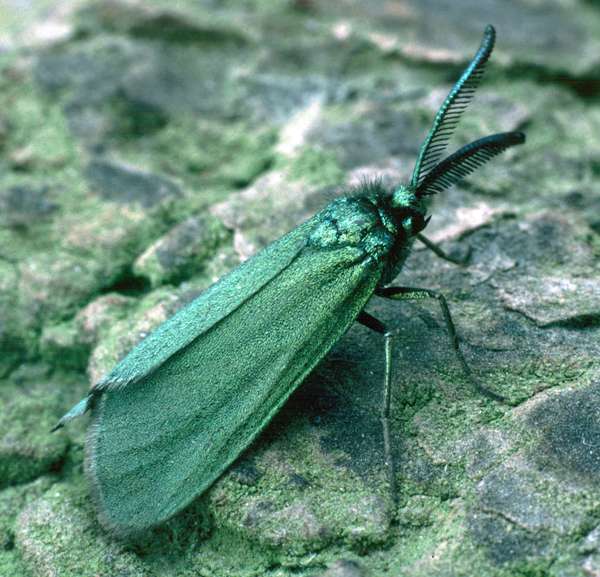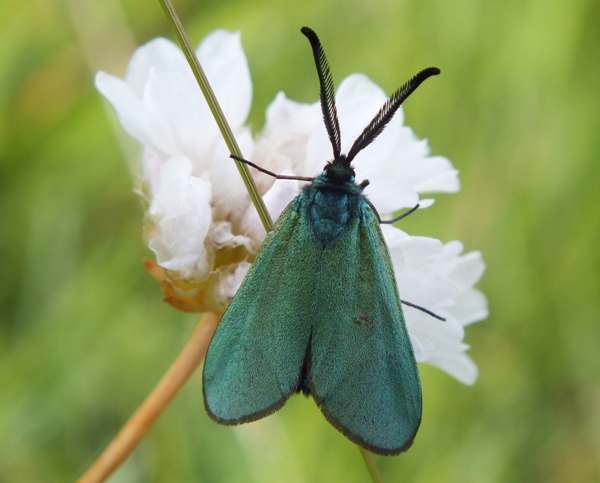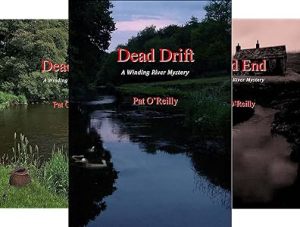Cistus Forester Moth - Adscita geryon
Phylum: Arthropoda - Class: Insecta - Order: Lepidoptera - Family: Zygaenidae

Like most members of the Burnet group, this is one of the day-flying moths, but its metallic yellow-green coloration makes it very easy to separate from other common members of the group apart from the Forester Moth (Adscita statices) which is similar in appearance. (There are 800 to 1000 members of the family Zygaenidae worldwide, but the vast majority are confined to the tropics. Some forty or so occur in northern temperate zone in Europe and North America.)

Foresters belong to the genera Theresimima, Rhagades, Jordanita and Adscita within the sub-family Procridinae.
The wingspan of the Cistus Forester Moth is 20-25 mm.
Its habitats are limestone outcrops and other calcareous terrain where there are good supplies of its foodplant, the Common Rock-rose (Helianthemum nummularium). Like its close relative, The Forester, it flies in sunshine during June and July.
Distribution
The Cistus Forester occurs mainly in the south, but there are scattered colonies further north in such places as Cumbria and North Wales.
The Scarce Forester, Jordanita globulariae, also occurs in Britain. Confined to central-southern and south-east England, this moth is now very rare; its larval foodplants are Common Knapweed, Centaurea nigra, and Greater Knapweed, Centaurea scabiosa.)
Lifecycle
The primary larval foodplant of the Forester Moth is Common Rock-rose (Helianthemum nummularium).
In the UK, adult Cistus Forester Moths can be seen flyingin June and July.
Picture: Rob Petley-Jones
Studying butterflies and moths...
Excited at the prospect of flyfishing? So are we, and we're pretty sure you would find the Winding River Mystery trilogy of action-packed thrillers gripping reading too. Dead Drift, Dead Cert, and Dead End are Pat O'Reilly's latest river-and-flyfishing based novels, and now they are available in ebook format. Full details on our website here...
Buy each book for just £4.96 on Amazon...
Please Help Us: If you have found this information interesting and useful, please consider helping to keep First Nature online by making a small donation towards the web hosting and internet costs.
Any donations over and above the essential running costs will help support the conservation work of Plantlife, the Rivers Trust and charitable botanic gardens - as do author royalties and publisher proceeds from books by Pat and Sue.
